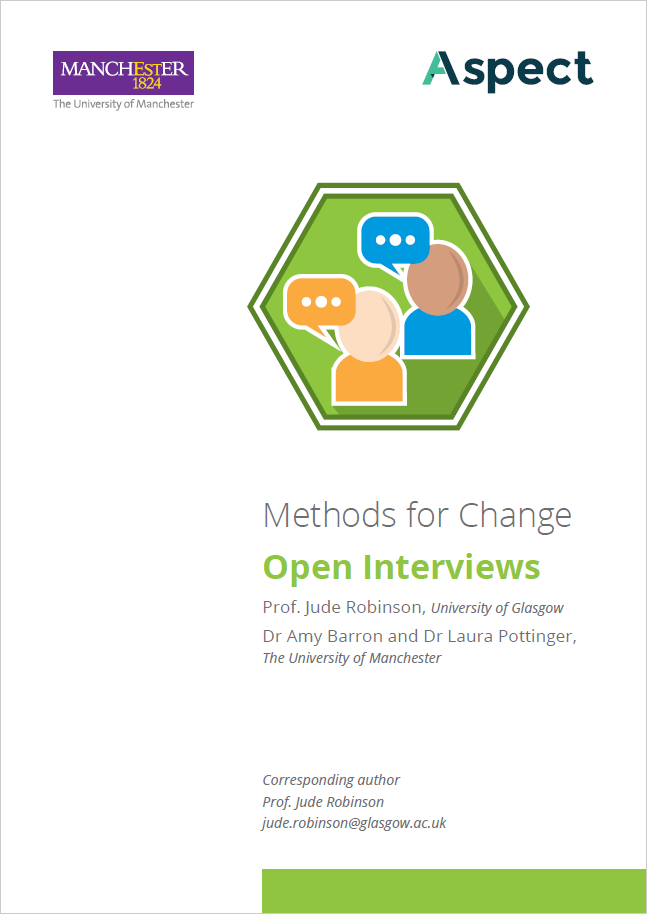Research Method: Open Interviews
Open Interviews are about developing a transparent and collaborative approach to interviewing that works for your participants. Power is a critical dimension of the research encounter in conventional interviews, as even in more relaxed, semi-structured approaches it is the interviewer who ‘holds’ the interview schedule and strongly influences the encounter. Rather than the interviewer directing the interview by asking questions, Open Interviews are designed to disrupt the conventional encounter; while you identify the key topics and questions that you would like your respondent to discuss these are ultimately navigated and explored by the participant in the interview.
In advance of the interview, participants are sent, or given, a onepage topic guide created by the researcher which clearly outlines the areas of interest to the research study. This summary can be presented in writing, pictorially or a combination of these depending on the audience. It is used to ease the participant into the research by giving them time to reflect how they might want to respond to a particular question and so make them feel more comfortable and prepared before the interview. In the interview, it is the participant who ‘holds’ the interview schedule, and it is up to the participant where they would like to start the conversation, in what order they cover the different points and how long they spend talking. While you can respond to any questions from the participant or give prompts if you deem that to be essential, your role during the interview is essentially to listen. It is important for you to explain the format of this kind of interview in advance and to reassure participants that there are no right or wrong answers, that they can choose to talk around the topics and questions and to ignore any topic areas that they prefer not to cover.
This approach is designed to enable participants to set the agenda within the broad parameters of the topic guide as they can foreground issues and talk longer on the topics they deem to be of interest compared to others listed. While Open Interviews can be conducted face to face, via email, telephone or on online platforms, it is important to remember that these mediums produce qualitatively different material. The point is to be open to what option works best for the participants and try to be consistent in your approach (email, phone, face-to-face) throughout your study.
You can find all the research outputs from the Methods for Change series here






